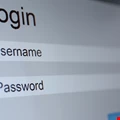Infosecurity News

(ISC)2 Expands Operations in the National Capital Region
The expanded corporate presence reflects the large member concentration that the organization has in the Washington, D.C. area.

Log-in Stealing Attack Builds on 18-Year-Old Flaw
Redirect to SMB could give MITM attackers keys to the kingdom

China Pegged for Long-Running APT 30 Attack Group
Southeast Asia-focused group jumped air gaps to steal info

Moto Modem Flaws Could Give Attackers Full Control
Combination of vulnerabilities is bad news for home internet users

SendGrid Used to Attack Coinbase Bitcoin Exchange
SendGrid offers an easy path to target-rich environments for phishing artists—and Bitcoin is a popular end game.

Georgia Tackles Critical Infrastructure Attacks
A fictional utility and its three power, water and gas subsidiaries will be the subject of four hybrid cyber/physical attacks.

SANS Reveals Insider Threat Security Gaps
IT security pros have poor visbility into the problem, according to institute

Upgrade iOS Now to Avoid Phantom Flaw, Say Researchers
New vulnerability fixed in iOS 8.3 could brick handsets

French TV Network TV5Monde Shunted Off Air By Pro-ISIS Hackers
Attackers most likely planned a precise targeted attack, say experts

AT&T to Pay $25 Million, Largest-Ever FCC Fine
The fine settles violations that exposed information for more than 250,000 customers in the US.

Gamarue Malware Taking Aim at Hundreds of Home Improvement Forums on the Web
Insecure code and watering-hole attacks are being used in combination in this active campaign.

54% of UK Firms Keep Sensitive Data in the Cloud
Because 80% use cloud in general, it’s clear that security remains a genuine concern and a major stumbling block for many.

Internet of Things Day: Time to Consider IoT Threats, Say Experts
Security flaws should set alarm bells ringing

UK Cyber Insurance Demand Rockets After Breaches
Increasing numbers of firms want to cover themselves in the event of an incident

White House: Russian Hackers May Still Be on the Network
A phishing scam was likely the initial vector.

Destructive Cyber-Attacks Blitz Critical Infrastructure – Report
CNI attacks on the rise and growing in sophistication in the Americas

Bitcoin Flaws Beckon Hackers
Interpol, Kaspersky uncover that blockchain-based cryptocurrencies could be abused through the pollution of public decentralized databases.

RedSeal Relaunches with $17Mn in Funding
The funding coincides with new cloud-oriented offerings and an expanded management team.

Combatting the Human Element
Companies report that the human factor is the largest driver behind security breaches—and addressing it is complex.

Premera Slapped with 5 Lawsuits Over Data Breach
Three weeks before the breach, federal auditors warned the company that its network-security procedures were inadequate.



